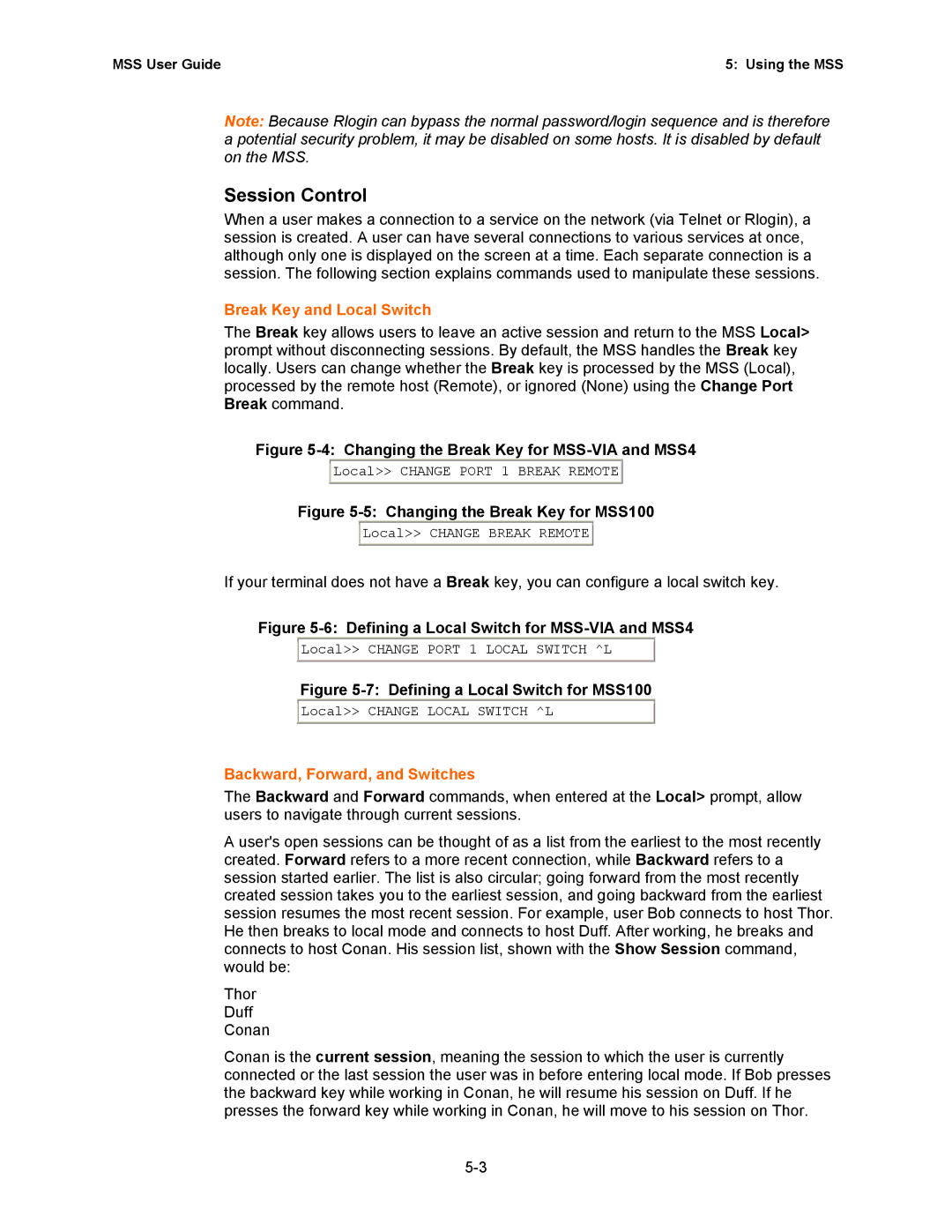
MSS User Guide | 5: Using the MSS |
Note: Because Rlogin can bypass the normal password/login sequence and is therefore a potential security problem, it may be disabled on some hosts. It is disabled by default on the MSS.
Session Control
When a user makes a connection to a service on the network (via Telnet or Rlogin), a session is created. A user can have several connections to various services at once, although only one is displayed on the screen at a time. Each separate connection is a session. The following section explains commands used to manipulate these sessions.
Break Key and Local Switch
The Break key allows users to leave an active session and return to the MSS Local> prompt without disconnecting sessions. By default, the MSS handles the Break key locally. Users can change whether the Break key is processed by the MSS (Local), processed by the remote host (Remote), or ignored (None) using the Change Port Break command.
Figure 5-4: Changing the Break Key for MSS-VIA and MSS4
![]() Local>> CHANGE PORT 1 BREAK REMOTE
Local>> CHANGE PORT 1 BREAK REMOTE ![]()
Figure 5-5: Changing the Break Key for MSS100
![]() Local>> CHANGE BREAK REMOTE
Local>> CHANGE BREAK REMOTE ![]()
If your terminal does not have a Break key, you can configure a local switch key.
Figure 5-6: Defining a Local Switch for MSS-VIA and MSS4
![]() Local>> CHANGE PORT 1 LOCAL SWITCH ^L
Local>> CHANGE PORT 1 LOCAL SWITCH ^L
Figure 5-7: Defining a Local Switch for MSS100
![]() Local>> CHANGE LOCAL SWITCH ^L
Local>> CHANGE LOCAL SWITCH ^L
Backward, Forward, and Switches
The Backward and Forward commands, when entered at the Local> prompt, allow users to navigate through current sessions.
A user's open sessions can be thought of as a list from the earliest to the most recently created. Forward refers to a more recent connection, while Backward refers to a session started earlier. The list is also circular; going forward from the most recently created session takes you to the earliest session, and going backward from the earliest session resumes the most recent session. For example, user Bob connects to host Thor. He then breaks to local mode and connects to host Duff. After working, he breaks and connects to host Conan. His session list, shown with the Show Session command, would be:
Thor
Duff Conan
Conan is the current session, meaning the session to which the user is currently connected or the last session the user was in before entering local mode. If Bob presses the backward key while working in Conan, he will resume his session on Duff. If he presses the forward key while working in Conan, he will move to his session on Thor.
